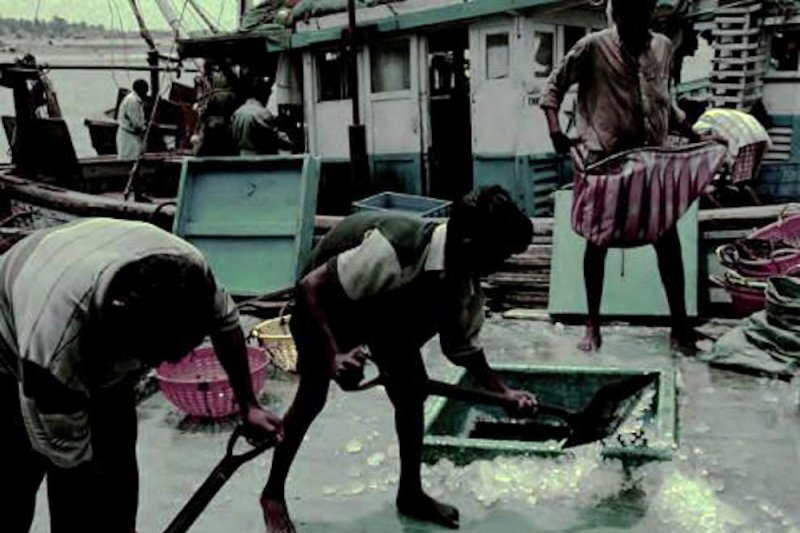Modern slavery is characterized by migrants and trafficked laborers subjected to long hours, low pay and debt bondage. Many abused workers end up on fishing vessels. Photo by ILO/Sea Around Us
Nov. 7 (UPI) -- Labor abuses, including modern slavery, underpin unsustainable commercial fishing practices, according to new research.
With commercial fishing stocks declining across Earth's oceans, fishing operations must do twice as much fishing to bring home the hauls boats were catching a few decades ago. In other words, it's increasingly difficult to turn a profit.
The harsh realities of modern fishing can help explain the prevalence of ecologically unsustainable fishing practices. In addition to skirting environmental regulations, new research suggests fishing operations are increasingly guilty of labor abuses.
If boats aren't fetching sufficient returns, profits can be sustained by more aggressively exploiting laborers.
Researchers claim both labor and environmental abuses are most common among fishing operators in China, Taiwan, Thailand, South Korea and Russia.
"The lack of control over these boats makes them a fertile ground for labour abuses, as well as other crimes including illegal fishing," Daniel Pauly, fisheries researcher with the Sea Around Us Initiative at the University of British Columbia, said in a news release. "It also facilitates transshipment, where catches of multiple fishing vessels are often combined before landing. Thus, seafood caught illegally or under conditions of modern slavery is laundered by mixing it with legally caught fish before it enters the supply chain."
Modern slavery in the United States, Canada and Europe is rare, but odds are, Americans, Canadians and Europeans are eating fish caught by modern slaves -- migrants subjected to long hours, low pay and debt bondage.
"While domestically the average slavery risk in the United States is low, the U.S. accounts for about 14 per cent of global seafood imports and those imports have a slavery risk 17 times higher than fish caught by U.S. fleets domestically," said Dirk Zeller, researcher at the University of Western Australia.
Scientists say once fish from unscrupulous sources become mixed with other products in the domestic seafood supply chain, unethical fish are difficult to track.
"The seafood available to domestic consumers in the U.S. becomes eight times more likely to have been produced or processed with modern slavery," said UWA researcher Jessica Meeuwig. "This makes the choice about both sustainability and social justice very difficult."
The best way to address the problem, researchers argue in their new paper on the subject -- published this week in the journal Nature Communications -- is by strengthening labor and environmental regulations and enforcement in problem regions.















